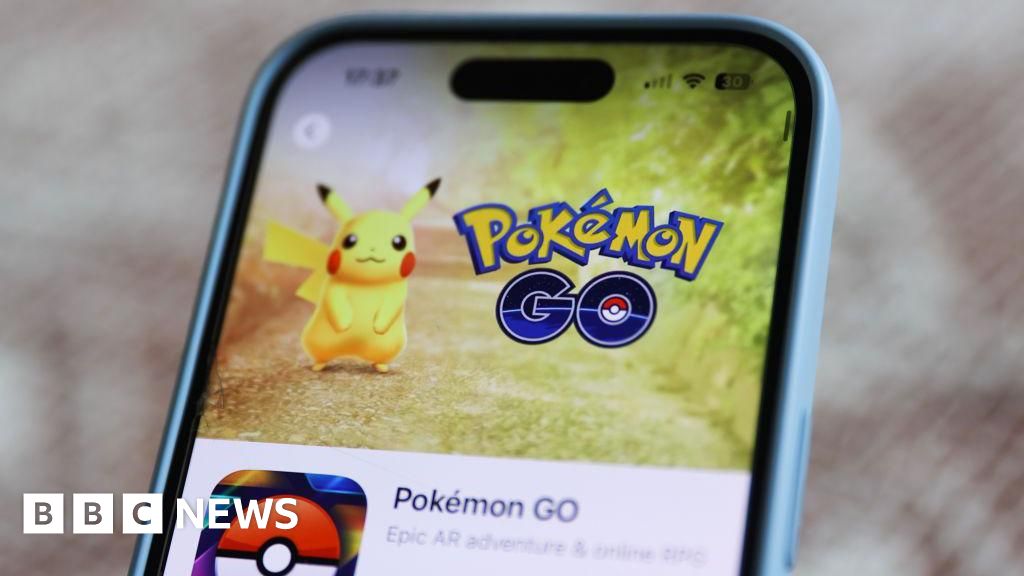
Pokémon Go Will Not Provide Location Data to Saudi Arabian Government!
In a bold move, Niantic, the developer of Pokémon GO, has announced that it will not provide location data to the Saudi Arabian government, reaffirming its commitment to user privacy and security.
In a significant and unprecedented decision, Niantic, the developer behind the global phenomenon Pokémon GO, has confirmed that it will not be sharing player location data with the Saudi Arabian government. The announcement comes amid growing concerns about data privacy, particularly regarding government surveillance and control over private citizens’ activities. Pokémon GO, a location-based augmented reality game, relies heavily on real-world data to allow players to capture Pokémon in various locations. However, Niantic’s decision demonstrates a commitment to safeguarding its users’ personal data, no matter the pressure from governments.
The move has drawn both praise and scrutiny from various groups, with privacy advocates applauding the decision as a win for digital rights, while others wonder what the future holds for the game’s operations in the region.
Why is Niantic Refusing to Share Location Data?
The decision to withhold location data from the Saudi Arabian government stems from concerns about data privacy and user protection. Governments around the world are increasingly seeking access to the private information of citizens, especially in relation to the data generated by apps like Pokémon GO. These requests could involve tracking players’ movements, identifying trends, and using that data for surveillance purposes.
In the case of Saudi Arabia, the government has made known its interest in gaining access to location-based data for various reasons, including monitoring public gatherings and events. Niantic has decided that providing such sensitive data could compromise the privacy and security of its users, especially considering the authoritarian nature of the Saudi regime and its controversial track record on human rights.

**The Importance of Location Data in Pokémon GO
Pokémon GO is a game built around the concept of exploration, with players using their smartphones to travel the real world and capture virtual Pokémon. The game uses location-based data to generate in-game events, place PokéStops, and set up Gyms in real-world locations. This means that Pokémon GO relies heavily on geolocation information, which, when used responsibly, provides a fun and immersive experience for players.
However, the game’s reliance on location data also makes it a potential target for governments seeking to access personal information about citizens. While Niantic has taken steps to ensure that user data is protected, the company is also balancing the need to ensure that its user base feels safe in using its platform without fear of governmental overreach.
Niantic’s Commitment to Privacy
Niantic has a long-standing commitment to user privacy and data protection, and this recent move reflects its ongoing effort to protect players. According to the company’s official statement, “protecting the safety and privacy of our players is a top priority”. The company has previously enacted policies that limit the sharing of personal data and has been transparent in communicating with users about how their data is handled.
Niantic’s decision not to provide location data to the Saudi government also aligns with the company’s previous moves to combat surveillance and ensure that players can enjoy Pokémon GO in a safe environment. The decision underscores the broader issue of data sovereignty and the importance of companies taking responsibility for their users’ personal information, especially in countries with known human rights concerns.

Global Impact of Niantic’s Decision
Niantic’s refusal to comply with government demands for location data could have significant implications for the Pokémon GO community in Saudi Arabia. The game is extremely popular worldwide, including in the Middle East, where it has garnered a large player base. Saudi Arabia’s interest in Pokémon GO data could be linked to its desire for broader control over its digital space, especially as the country seeks to boost its technological influence.
For Niantic, this decision is also a statement of principle in the broader context of digital rights. With increasing pressure from governments around the world to share user data, Niantic’s commitment to standing firm against this pressure could set a precedent for other developers in the mobile gaming industry. The move emphasizes the need for balance between government requests for data and the protection of user privacy and freedom.
However, there could be consequences. Niantic may face increased regulatory pressure in Saudi Arabia, and the game’s availability or functionality in the country could be affected if the government decides to take retaliatory action. Such actions could include blocking the game or imposing penalties on Niantic for its refusal to cooperate.
What This Means for Pokémon GO Players in Saudi Arabia
For players in Saudi Arabia, this decision means that Niantic will continue to protect their personal information from external scrutiny by the government. While this may not affect the gameplay experience itself, it sends a strong message about the importance of privacy in the digital age. Players can continue to enjoy Pokémon GO without fearing that their movements or in-game activities are being tracked by authorities.
That said, Saudi players should be aware of the potential challenges ahead. If the government pursues punitive actions against Niantic, the game could experience disruptions in the country, such as server outages or the removal of certain features. However, as of now, Pokémon GO is still fully operational in Saudi Arabia, and Niantic has reiterated its commitment to keeping the game accessible and fun for players in the region.
Niantic’s decision to withhold location data from the Saudi Arabian government is a significant move in the ongoing debate over digital rights and user privacy. As location-based games continue to grow in popularity, developers like Niantic are under increasing pressure to protect their users’ personal data from government surveillance and misuse. By taking a firm stand against such requests, Niantic has not only protected its users but also set an example for other companies in the gaming industry.

For Pokémon GO players, this is a reminder that privacy matters in the digital age, and their personal information should always be handled with care. While the future of Pokémon GO in Saudi Arabia remains uncertain, Niantic’s dedication to privacy and user security will likely continue to shape the future of the game and the broader gaming landscape.











Post Comment